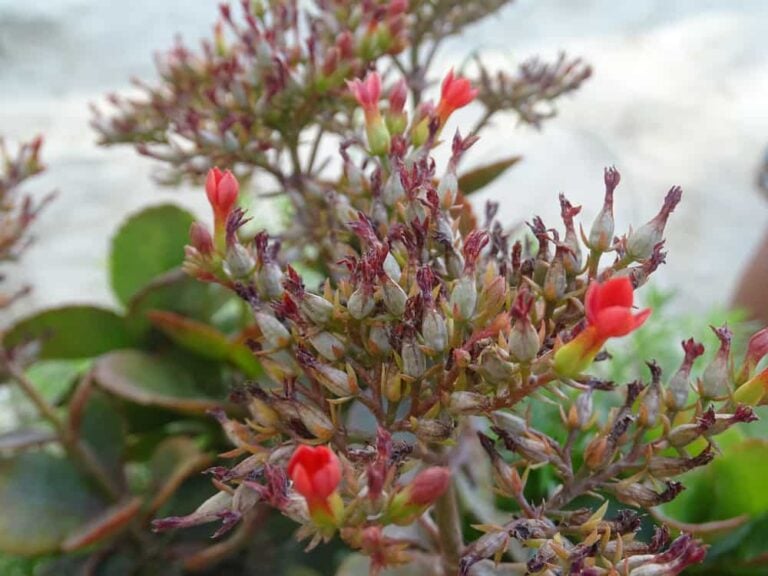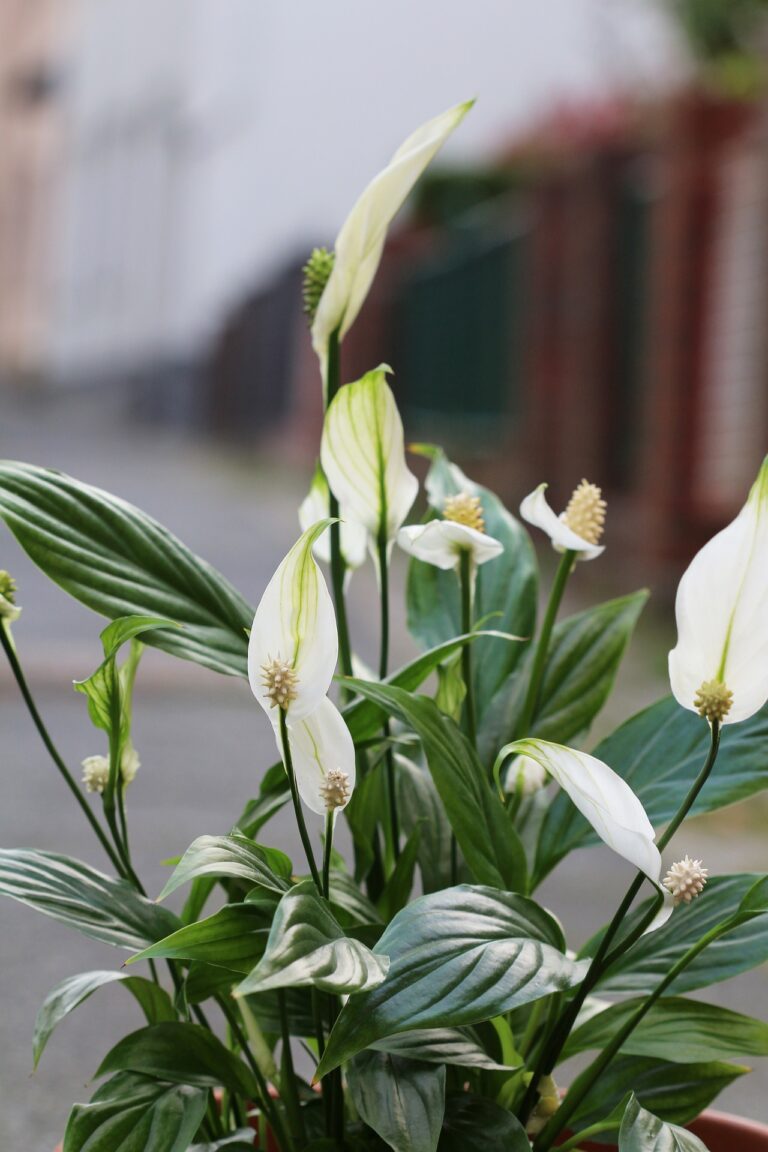How to Grow Madagascar Jasmine: Tips & Care
In a word, the Madagascar jasmine is a showstopper on so many levels. It’s a plant that demands attention with its lovely flowers and mesmerizing fragrance. And at 10 feet tall, it’s hard to miss! Continue reading to learn more about this gorgeous tropical vine.
What Is the Madagascar Jasmine?
The beautiful Madagascar Jasmine (Stephanotis floribunda) is a member of the Apocynaceae or Dogbane Family. The group includes many plants you’ll recognize including the oleander. We probably don’t have to tell you that this plant is highly fragrant as its name suggests. You’ll find it called waxflower or bridal wreath. It has its place in many wedding bouquets and corsages.
It is an evergreen climbing vine that likes its space. Given the chance and the right conditions, it’ll grow 10 feet or more. Both its flowers and foliage are gorgeous. However, it’s not the easiest plant to grow indoors simply because of the room it needs. Unless you’re growing it in a greenhouse, you may have to coax it to bloom. If you want a challenge, it’s an excellent choice.
Planting the Madagascar Jasmine
You can grow the Madagascar jasmine outdoors or indoors. It can tolerate USDA Hardiness Zones 10 and 11. We think it’d make a lovely addition to a lanai. One plant will suffice undoubtedly since you’d have to space them 8 to 10 feet apart. Keep the space requirement in mind for an indoor plant too. A plant this size will need a support such as a trellis.
Care and Maintenance
The fact that it is a tropical plant should give you an idea of what the Madagascar jasmine is going to need to be happy. Stability is essential. Remember that in these parts of the world, there isn’t a lot of variability with temperature. Moisture, of course, is another story. The plant isn’t going to like a lot of change in its world.
Light and Temperature
If you want those fragrant blooms, you’ll have to provide the Madagascar jasmine with plenty of bright indirect light. Outside, it’ll enjoy full sun to partial shade as long as it isn’t direct sunlight. Its leaves will turn yellow if it isn’t getting enough light.
It prefers temperatures on the warmer side during the spring and summer. Temperatures between 65 and 80 degrees Fahrenheit are ideal. Cooler temperatures in fall and winter are fine too. If it gets too cold, flower buds will drop.
Moisture Needs
As expected with a tropical plant, the Madagascar jasmine likes it humid, especially during flowering. It likes the relative humidity in the range of 60 to 70 percent. If it falls much below that figure, you should mist it regularly, taking care to avoid wetting its flowers. You can also add humidity using a shallow tray of water or by grouping plants in one section in the room.
If you mist your plant, you should use distilled water, especially if you have hard water. The Madagascar jasmine prefers acidic soil conditions. Hard water will change the soil chemistry over time and affect its long-term survival. You can also use rainwater that you can collect with a rain barrel. Rain is slightly acidic naturally, so you needn’t treat it in any way.
Soil Conditions and Fertilizing
Soil acidity should range between 5.6 to 6.5 pH. If you’re planting it outdoors, you should test the soil first. You can then amend garden soils with compost if necessary to get it in the proper range. For houseplants, you can use a soil mixture specially formulated for acid-loving plants. You can add perlite or sand to the mix to improve drainage to avoid root rot.
You will need to repot the Madagascar jasmine occasionally to keep up with its growth. However, despite its size, it can tolerate it if conditions get a bit snug. Regarding fertilizing, you can use a standard mix and apply it every two weeks while the plant is in flower and growing. You can cut back during the winter months both with fertilizing and watering.
This video from the University of Illinois Extension walks you through the process of repotting houseplants.
Fitting In
The biggest concern you’ll have with the Madagascar jasmine is space. Outdoors, you’ll need to use a trellis or stakes to keep it upright. You should also provide shelter to protect it from strong winds. It should play nice with other plants in your garden or home. And it is safe in a home with pets. While some plants in this family are poisonous, the Madagascar is not toxic to pets.
Special Care Notes
We said earlier that this plant is a challenge. That is because some plants are reluctant to bloom. You can get your plant to flower by replicating its natural conditions. In addition to light and moisture, you can coax it to bloom with a cool spell during the winter. Many plants need this trigger to flower the following season.
Make sure the temperature is above 50 degrees Fahrenheit. Other possible causes are a lack of adequate light. However, the Madagascar jasmine doesn’t like to be moved, so take the time to choose a good location from the start. It may also fail to flower if it’s not getting enough moisture or the temperatures are too cool. Just like Goldilocks, everything must be just right.
Pruning
You may need to prune the plant occasionally, preferably before flowering in the spring. It’s a good time to get rid of bare or damaged branches and to tidy up its appearance. It won’t necessarily encourage new growth, so it’s more for space considerations and aesthetics. You can cut weak or side shoots for a fuller look.
The Madagascar jasmine is a handsome plant with both beautiful foliage and attractive, fragrant flowers. It is a stunning addition that will bring a tropical feel to the right space. Though it may take time to flower, you’ll be rewarded for your attention to care and patience with its lovely floral display.
Photo by Laana13 licensed under CC0.
Also Read: Flaming Katy


